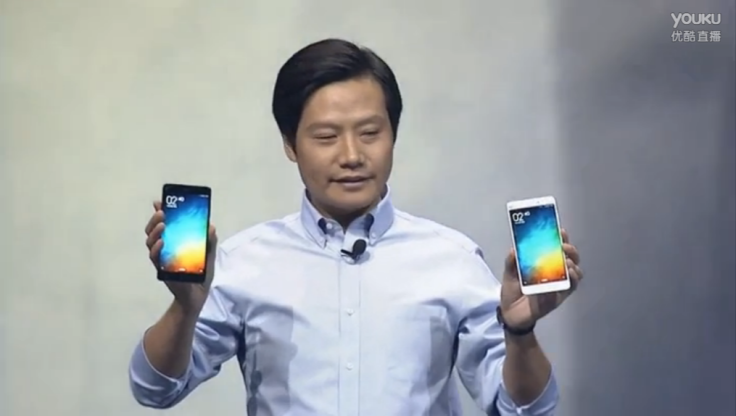Xiaomi smartphone sales stutter as Apple continues to show the way

Xiaomi may be seen as the rising star of the smartphone industry, but old-hand Apple is still growing faster than its upstart rival.
Chinese internet company Xiaomi is seen by many as the fastest growing in the smartphone industry. In the space of just five years it has come from nowhere to at one point in 2014 become the third biggest smartphone manufacturer in the world.
Xiaomi, erroneously dubbed the "Apple of the East" by some, was seen as a challenger to the big guns of the industry – Apple and Samsung.
Indeed, the company's outspoken CEO Lei Jun openly declared in January that the company wants "to become the biggest phone company in the world".
To achieve that goal the company's stated aim for 2015 was to sell 100 million smartphones, up from the 61 million it sold in 2014.
The organisation has now announced that it has sold just 34.7 million smartphones in the first half of 2015, meaning that reaching that 100 million mark could be already out of reach. However, Jun, who recently revised the 100 million target to between 80 and 100 million, was upbeat following the announcement of the results.
"Even with the China smartphone market slowing down, we did a stellar job of posting a 33% growth on last year's numbers. It can be said that we outperformed the market and produced an excellent report card," he said.
Faster growing Apple
A year-on-year comparison shows that sales have grown 33% which is a remarkable achievement by any standards. Well, expect those of Apple of course which is on track to see sales in the fist half of 2015 rise by a huge 40% (according to one analyst at least) when it reveals its second quarter results later this month.
Xiaomi: 35M smartphones sold in 1H15 (33% yoy growth).
Apple: ~110M iPhones sold in 1H15 (40% yoy growth)
— Neil Cybart (@neilcybart) July 2, 2015Much of Apple's huge growth comes from the Chinese market where Xiaomi is currently the number-one smartphone manufacturer but it is a market that is slowing down as analysts predict it reaching saturation point.
Research from IDC (International Data Corporation) says the Chinese market saw a dip in smartphone shipments for the first time in six years during the first quarter of 2015, though it is unclear if this is going to be a sustained period of decline or if it is simply a momentary blip.
During that quarter Apple toppled Xiaomi as the biggest manufacturer in China thanks to the huge success of the iPhone 6 and iPhone 6 Plus.
For Xiaomi, however, it's not all bad news. Going on past performance, the company typically sells more smartphones in the second half of the year than it does in the first and it has just launched its smartphones in Brazil which will expand the number of potential customers.
Xiaomi still only sells smartphones in a handful of countries in Asia and Latin America, but is planning to add at least one more (Russia) before the end of 2015.
Expansion
The company, which is better described as an internet company than a smartphone company, has also expanded to the UK, France, Germany and the US with its online Mi store, selling wearables and accessories like headphones and battery packs – though not its smartphones.
Xiaomi is clearly going to struggle to continue the rapid growth it has seen in the last 24 months, especially as it seeks to enter the US and UK where its business model of selling unsubsidised smartphones direct to consumers could be difficult to replicate in markets where mobile phone operators dominate.
This is also of course the issue of patents, and the expectation that launching in these markets will bring with it legal challenges from the likes of Samsung and Apple.
Another factor which will likely help drive growth in the second half of 2015 will be the expected launch of its new flagship the Mi5 which will take the place of the hugely popular Mi4 though of course Apple is also likely to launch its own 2015 flagship in the coming months, meaning that outpacing the world's most valuable company could be a challenge for the Chinese startup.
© Copyright IBTimes 2025. All rights reserved.






















